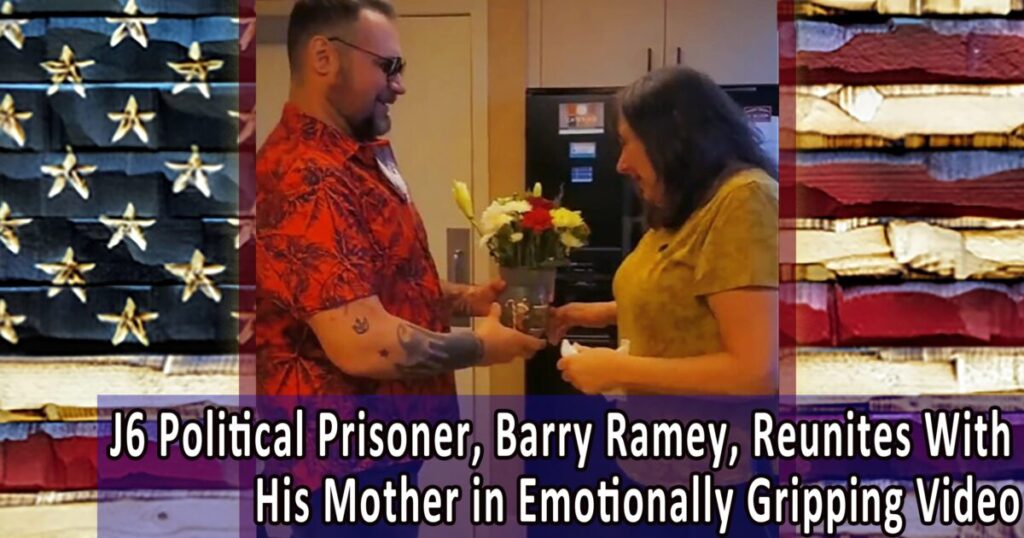Barry Ramey’s story serves as a poignant reminder of the struggles faced by many individuals subjected to the judicial system, particularly in the wake of the January 6th Capitol events. As a political prisoner, Ramey endured harsh conditions during his time in the custody of the Bureau of Prisons (BOP), experiencing solitary confinement, severe violations of his First Amendment rights, harassment from prison officers, and unjust scrutiny from the BOP’s counterterrorism unit. Despite being neither charged nor convicted of any terrorism-related offenses, Ramey’s resilience shone through as he navigated the myriad difficulties he faced, demonstrating an indomitable spirit that remained unbroken through all forms of abuse and neglect.
The emotional toll of incarceration extends beyond the individual, severely impacting the prisoners’ families. This was evident for Ramey’s mother, Mary Ann, who faced her own battles with health issues, including a brain tumor, while her son was incarcerated. She was left to endure the uncertainty of whether she would ever see her son as a free man again. Barry’s surprise reunion with his mother at her workplace, where he entered unannounced and presented her with flowers, highlights the deep emotional connection between them. This moment, full of raw feelings and joy, showcased the love that endured through the trials of separation, making the reunion a strikingly powerful illustration of familial bonds strained by adversity.
Reflecting on this heartfelt reunion, Barry expressed profound gratitude for the opportunity to honor his mother, acknowledging his past mistakes as a son. He articulated his commitment to cherish their relationship moving forward, framing it as an opportunity to redeem himself while embodying love and respect for his mother. Barry’s emotional remarks reveal how the experience of being apart has enriched his appreciation for family and has rekindled his desire to build a better future alongside his mother, emphasizing the transformative power of love even amidst darkness.
As Barry embarks on the road to recovery and rebuilding his life post-incarceration, the circumstances remain challenging. Financial devastation coupled with bureaucratic hurdles present daunting obstacles. He currently resides in a halfway house, where he faces delays in job approval from the BOP. This limbo leaves him unable to provide for his family or even leave the facility for home visits, perpetuating the cycle of emotional and financial strain. Barry’s plight serves as a sobering reminder of the continuing impacts of incarceration that extend well beyond confinement itself.
To help Barry and his family regain their footing, numerous supporters rally around them to facilitate their restart. Emphasizing community support, the call to action encourages contributions that can assist in alleviating their financial struggles and contribute to their journey toward healing and stability. This mobilization underscores the importance of a supportive network in overcoming the adversities that accompany reintegration after incarceration. Collectively, these efforts highlight a vital perspective—that recovery is not a solitary endeavor but rather one that thrives on shared compassion and assistance.
In conclusion, Barry Ramey’s narrative encapsulates the complexities faced by political prisoners and their families, drawing attention to the profound emotional impact of incarceration. His reunion with his mother stands as a testament to enduring love, signifying hope in the wake of adversity. As he grapples with the remnants of his past while navigating the intricacies of rebuilding a life, the community’s support is paramount. Such stories not only shed light on the struggles of individuals like Barry but also advocate for broader conversations around justice, compassion, and reconciliation in American society. By fostering understanding and empathy, we can strive to ensure that no one is left to face the aftermath of incarceration alone.

